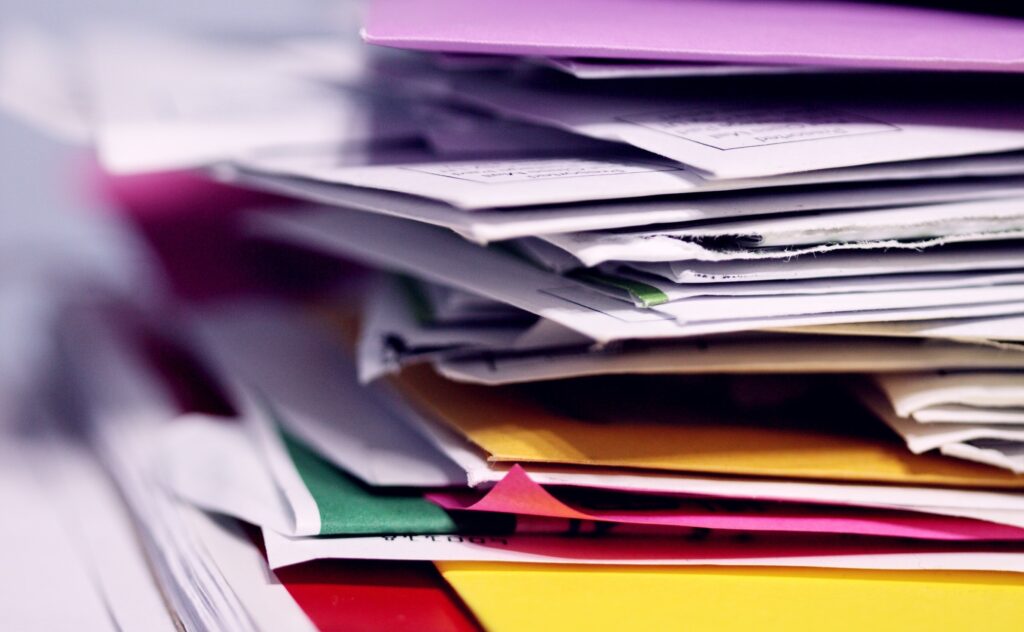When opening a bank account, applying for a job or making other important arrangements, you often need to provide proof of your home address. If an organisation requests ‘proof of address’, they wish to see a document or letter addressed to you by an official source.
As a trusted notary public in the UK, we understand the importance of this document. Read on for a comprehensive overview of how to get your proof of address.
When Do You Need Proof of Address in the UK?
A proof of address document provides evidence of your residence at a specific location. You will often need one to verify your identity or your eligibility for a service.
You may need to supply proof of address in any of the following situations, among others:
- Opening a bank account
- Applying for a credit card, loan, mortgage or another financial product
- Dealing with government agencies
- Applying for a driver’s license, passport, or any government-issued identification
- Setting up or changing utility services such as energy or water
- Applying for a tenancy or signing a rental agreement
- Purchasing a property
- Entering new employment
- Starting a school, college, or university
- Registering to vote
- Applying for an insurance policy
- Engaging in legal proceedings
What Can Be Used As Proof of Address?
Proof of address in the UK is typically a dated document showing your name and current address. Here are some commonly accepted documents:
- Utility bills (gas, electricity, water) – Up to 12 months old
- Council tax bill or statements – Current year
- Recent bank statement (within the last 3 months)
- Tenancy agreement Mortgage statements
- Official government letters
- For newcomers to the country: Letters from employers or educational institutions may be accepted by some organizations.
As a notary public, we can assist you in certifying these documents to ensure they meet the recipient’s requirements.
How to make sure your proof of address documents are valid
- Check the date. Many organisations will require your proof of address to be dated within the last three months. This length of time can vary depending on the document and who is requesting it, so it’s best to check with them.
- Make sure the document contains your full name, address and the date of issue. If there is an error in the name or address printed, the document may not be accepted. Also, some statements and letters might not include a date, so it’s important to check this.
- Double-check the authenticity of the issuer. The document should come from a legitimate utility company, a recognised financial institution or a government department/local authority.
Updating Your Information When You Move
If you’re struggling to find a letter or document dated in the last three months, it may be that you forgot to update your information when you last moved home.
To ensure your proof of address is always current and valid, it’s important to notify relevant authorities, including your local council and utility providers, about every change of address. Doing this as soon as possible will save you from delays when you need to provide proof of address in the future.

Obtaining a Notarised Proof of Address
For added authenticity, consider obtaining a notarised proof of address. As a notary public, we can verify the authenticity of acceptable documents by affixing our official seal and signature.
This step enhances the credibility of your proof of address, which is especially important when you’re supplying the document to international institutions.
Online Platforms and Digital Documents
Many government agencies and utility providers offer online portals where you can download electronic copies of your statements.
Steps to ensure your digital proof of address is accepted:
- Ensure that you download a PDF copy of an official letter or statement. Screenshots will not be accepted.
- Check that the digital document contains your full name, address and the date of issue.
- Ask the organisation requesting proof of address if they accept a digital document and if the printout should be notarised.
- Reach out to a notary public to get your printed proof of address notarised.
Common Issues With Proof of Address Documents
- Incorrect name
If you have recently changed your name, you need to update your bank, local authority and service providers to ensure all documents match your ID. (Some organisations may accept proof of address with your previous name alongside a deed poll or marriage certificate.)
- Expired date of issue
Your proof of address must be recently dated. If you are struggling to find a recently dated document, consider downloading your latest bank statement or utility bill online. You can also request a paper statement from most banks.
- Invalid document type
If your proof of address is declined, it may be that you submitted a document the organisation doesn’t accept. For example, your document might be missing the issuer’s logo. Check what counts as proof of address within the organisation.
Notarisation of Proof of Address Documents
If the document is issued in a hard copy, we must be provided with the original document and a copy of the same will be notarised as a true copy of the original.
If the proof of address document is issued electronically, we must verify the source of the same. You will be asked to log in to the issuer’s website and download the document in our presence. We will notarise the document as an authentic electronic document.
Submitting Your Proof of Address Document
By keeping authorities informed of your current address and filing your documents securely, you can easily submit a valid proof of address whenever it is requested.
As one of the UK’s longest-standing notaries, we are here to assist you in ensuring the authenticity and credibility of your proof of address. If you have any questions or need our services, feel free to reach out today – we’re here to help!

